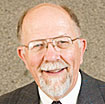Commentary on Judges 4:1-7
Deborah is among the most prestigious female leaders in the Old Testament and her exemplary leadership may provide encouragement to lay and ordained female leaders in the church today.
It is unclear whether Deborah was the wife of a man named Lappidoth, of whom nothing is known, or if the etymology of the Hebrew words behind “wife of Lappidoth,” actually describes her personality–she was a fiery woman! She is also called a prophetess, just like Miriam (Exodus 15:20), Huldah (2 Kings 22:14//2 Chronicles 34:22), and the wife of Isaiah (Isaiah 8:3). The office of prophet in the Old Testament was by no means restricted to men. Prophets in the Old Testament bring oracles of Yahweh to individuals or groups, as Deborah does in vv. 6-7. Holy Wars in the Old Testament were not fought until Yahweh authorized them in various ways, and in this story, by divine oracles that came through a woman. Deborah also held the office of judge. That office had two aspects, and Deborah fits the criteria for both. First, people came to her to solve legal disputes although we are not told whether her ability to solve legal squabbles called primarily on her judicial wisdom, or whether, since she was a prophet, she also could seek a direct decision from Yahweh to deal with difficult cases. Secondly, “judges” in this book are military heroes through whom Yahweh delivered his people, just like Ehud, Gideon, and Samson. Deborah is the only judge who is evaluated positively in an unequivocal way– per contra Gideon, who became a source of idolatry (Judges 8:27) and Samson, who was a notorious womanizer. Deborah was also serving as a judicial officer before she was called to serve in a military capacity whereas other judges arise out of “nowhere” to lead the people to victory.
There are two accounts of Deborah’s battle, in chapter 4 and in chapter 5. The latter is written in archaic poetry that is probably one of the oldest documents in the Old Testament. There are several differences between the accounts, and they were clearly written by two different people. Did Jael drive a tent peg through the skull of Sisera (Judges 4:21) or did she hit him with the old “one-two,” first with a tent peg and then with a workman’s mallet (Judges 5:26)? According to Judges 5:1, Deborah and Barak sang the song that makes up this chapter, although most scholars would agree with the implications of Judges 5:12 that Deborah alone was the singer. In the poem, Deborah is identified as a “mother” in Israel (5:7). The exact significance of this title is unknown, but there are multiple references to the title “father” in the Old Testament (see Genesis 45:8; Judges 17:10; 1 Samuel 10:12). The analogous title “father” is also used of male prophets (2 Kings 2:12; 6:21; 13:14), and the disciples of prophets were often called their sons.
The story in chapter 4 follows an outline that is characteristic of many of the stories of the judges. Israel sinned or did evil, and consequently, Yahweh sold them into the hands of a foreign king, in this case Jabin, king of Hazor (see chapter 11). When Israel cried to Yahweh, either in desperation, in a spirit of repentance, or both, Yahweh sent deliverance. Here such deliverance is promised in a divine oracle (vv. 6-7) with the details given in both chapters 4 and 5. In the midst of the battle, Deborah receives another divine oracle that tells Barak when to engage Sisera in an attack (Judges 4:14). One very interesting detail in v. 9, unfortunately not included in the lectionary, comes through Deborah’s enigmatic statement to her general Barak that the battle would not lead to his glory since Yahweh would sell the Canaanite general Sisera into the hand of a woman. At this stage of the story, one would assume that woman would be Deborah, but it turns out to be Jael (Judges 4:17-22; 5:24-27). Jael becomes a second role model of a strong and courageous woman. In any case, God’s initiative uses a variety of human helpers. God promises to give Sisera into the hand of Barak, but Barak’s request for Deborah to accompany him seems to lead to a change in God’s plans. The book of Judges offers a wide range of female experiences, some negative and some positive. On the positive side is the strong faith displayed by Samson’s nameless mother in chapter 13.
Two incidental details help us to see that this battle was not of epic proportions. Jabin had only 900 chariots–not thousands of them–but they were made of iron. It is now thought that the Philistines brought the technology of smelting iron to Palestine. Secondly, only the tribes of Zebulun and Naphtali were involved in the battle. Chapter 5 has a somewhat different account of which tribes participated (vv. 14-18), but even there the tribe of Judah is notably absent.
After the deliverance in the wars in Judges, the heroic judge normally goes back to his or her previous occupation and the land is given rest for twenty, forty or even eighty years (Judges 5:31; cf. 3:30). And then the cycle starts all over again! This repeated willingness of Yahweh to respond to the cries of his sinful people exemplifies God’s gracious character. But we should note that in the Books of Kings, the repeated sins of the people finally lead to the destruction of the Northern and Southern kingdoms. God’s grace is not to be taken for granted.

November 16, 2008